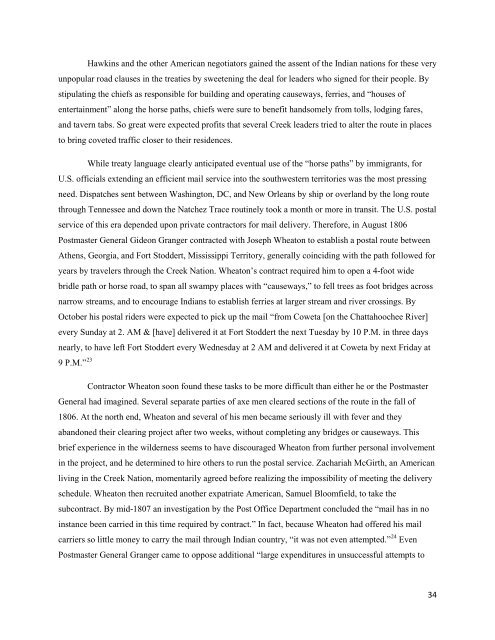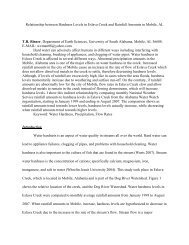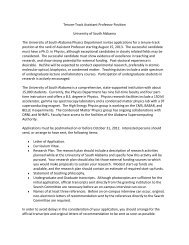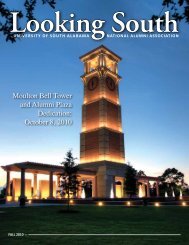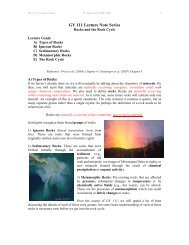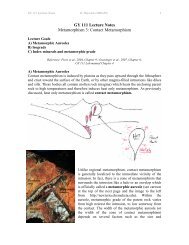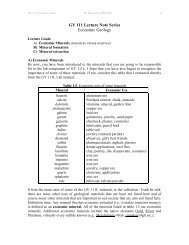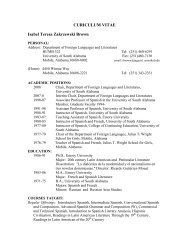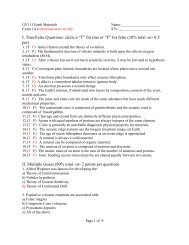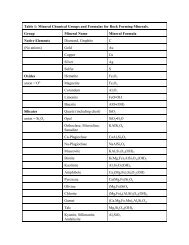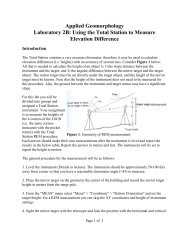Archaeological Survey of the Old Federal Road in Alabama
Archaeological Survey of the Old Federal Road in Alabama
Archaeological Survey of the Old Federal Road in Alabama
You also want an ePaper? Increase the reach of your titles
YUMPU automatically turns print PDFs into web optimized ePapers that Google loves.
Hawk<strong>in</strong>s and <strong>the</strong> o<strong>the</strong>r American negotiators ga<strong>in</strong>ed <strong>the</strong> assent <strong>of</strong> <strong>the</strong> Indian nations for <strong>the</strong>se veryunpopular road clauses <strong>in</strong> <strong>the</strong> treaties by sweeten<strong>in</strong>g <strong>the</strong> deal for leaders who signed for <strong>the</strong>ir people. Bystipulat<strong>in</strong>g <strong>the</strong> chiefs as responsible for build<strong>in</strong>g and operat<strong>in</strong>g causeways, ferries, and “houses <strong>of</strong>enterta<strong>in</strong>ment” along <strong>the</strong> horse paths, chiefs were sure to benefit handsomely from tolls, lodg<strong>in</strong>g fares,and tavern tabs. So great were expected pr<strong>of</strong>its that several Creek leaders tried to alter <strong>the</strong> route <strong>in</strong> placesto br<strong>in</strong>g coveted traffic closer to <strong>the</strong>ir residences.While treaty language clearly anticipated eventual use <strong>of</strong> <strong>the</strong> “horse paths” by immigrants, forU.S. <strong>of</strong>ficials extend<strong>in</strong>g an efficient mail service <strong>in</strong>to <strong>the</strong> southwestern territories was <strong>the</strong> most press<strong>in</strong>gneed. Dispatches sent between Wash<strong>in</strong>gton, DC, and New Orleans by ship or overland by <strong>the</strong> long routethrough Tennessee and down <strong>the</strong> Natchez Trace rout<strong>in</strong>ely took a month or more <strong>in</strong> transit. The U.S. postalservice <strong>of</strong> this era depended upon private contractors for mail delivery. Therefore, <strong>in</strong> August 1806Postmaster General Gideon Granger contracted with Joseph Wheaton to establish a postal route betweenA<strong>the</strong>ns, Georgia, and Fort Stoddert, Mississippi Territory, generally co<strong>in</strong>cid<strong>in</strong>g with <strong>the</strong> path followed foryears by travelers through <strong>the</strong> Creek Nation. Wheaton’s contract required him to open a 4-foot widebridle path or horse road, to span all swampy places with “causeways,” to fell trees as foot bridges acrossnarrow streams, and to encourage Indians to establish ferries at larger stream and river cross<strong>in</strong>gs. ByOctober his postal riders were expected to pick up <strong>the</strong> mail “from Coweta [on <strong>the</strong> Chattahoochee River]every Sunday at 2. AM & [have] delivered it at Fort Stoddert <strong>the</strong> next Tuesday by 10 P.M. <strong>in</strong> three daysnearly, to have left Fort Stoddert every Wednesday at 2 AM and delivered it at Coweta by next Friday at9 P.M.” 23 Contractor Wheaton soon found <strong>the</strong>se tasks to be more difficult than ei<strong>the</strong>r he or <strong>the</strong> PostmasterGeneral had imag<strong>in</strong>ed. Several separate parties <strong>of</strong> axe men cleared sections <strong>of</strong> <strong>the</strong> route <strong>in</strong> <strong>the</strong> fall <strong>of</strong>1806. At <strong>the</strong> north end, Wheaton and several <strong>of</strong> his men became seriously ill with fever and <strong>the</strong>yabandoned <strong>the</strong>ir clear<strong>in</strong>g project after two weeks, without complet<strong>in</strong>g any bridges or causeways. Thisbrief experience <strong>in</strong> <strong>the</strong> wilderness seems to have discouraged Wheaton from fur<strong>the</strong>r personal <strong>in</strong>volvement<strong>in</strong> <strong>the</strong> project, and he determ<strong>in</strong>ed to hire o<strong>the</strong>rs to run <strong>the</strong> postal service. Zachariah McGirth, an Americanliv<strong>in</strong>g <strong>in</strong> <strong>the</strong> Creek Nation, momentarily agreed before realiz<strong>in</strong>g <strong>the</strong> impossibility <strong>of</strong> meet<strong>in</strong>g <strong>the</strong> deliveryschedule. Wheaton <strong>the</strong>n recruited ano<strong>the</strong>r expatriate American, Samuel Bloomfield, to take <strong>the</strong>subcontract. By mid-1807 an <strong>in</strong>vestigation by <strong>the</strong> Post Office Department concluded <strong>the</strong> “mail has <strong>in</strong> no<strong>in</strong>stance been carried <strong>in</strong> this time required by contract.” In fact, because Wheaton had <strong>of</strong>fered his mailcarriers so little money to carry <strong>the</strong> mail through Indian country, “it was not even attempted.” 24 EvenPostmaster General Granger came to oppose additional “large expenditures <strong>in</strong> unsuccessful attempts to34


